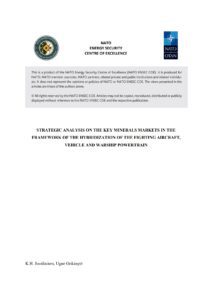
COVID-19 has caused exceptional turmoil in world energy markets and societies, but long term effects are extremely hard to assess. The pandemic was an additional “trouble layer” on an already distressed international system suffering economic problems, international power completion and rising tensions within countries.
From a short term perspective, NATO energy security was not hindered during 2020 and both alliance and its individual member countries had secure energy security. From mid and long term perspectives, closure of European oil refineries are problematic for NATO energy security, since it lowers resilience during conflict. Oil refinery capacity will move to China, which is bound to be the world’s largest oil refiner in a few years. Remaining refineries have to increasingly compete with Asian refineries. COVID-19’s impact
on gas and energy security has been minor, but as a whole NATO energy security needs more diversified natural gas imports and better gas transmission infrastructures in Europe. Renewable energy was most resilient during the pandemic, but fossil liquid fuels clearly remains the primary energy staple. Renewable energy is not a threat to NATO energy security, since it lessens dependency of hydrocarbon imports. Also, the use of liquid biofuels was technically already tested by NATO armed forces almost a decade ago. The expansion of the NATO pipeline system to the Eastern Flank has been long delayed. Expansion would improve NATO energy security during a more lethal pandemic, armed conflict or other contingency while lowering carbon dioxide emissions. More flexible acquisition and training planning processes would allow enlargement of strategic crude oil storages and especially increase military flight hours.
Information cut-off date of this product is 8 December 2020.
